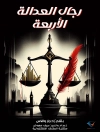Rudyard Kipling’s ‘Ultimate Collection (Illustrated)’ is a comprehensive anthology encapsulating the author’s diverse literary output, ranging from poignant short stories to epic poetry. This collection is vividly illustrated, enhancing the rich tapestry of Kipling’s vividly drawn worlds. It reflects his literary style, characterized by a masterful use of language, rhythmic prose, and deep exploration of themes such as imperialism, colonialism, and human nature, set against the backdrop of the British Empire during the late 19th and early 20th centuries. Each work invites readers into a realm where the exoticism of far-off lands collides with intricate moral dilemmas, promising insights into both the grandeur and the pitfalls of civilization. Rudyard Kipling, a product of the British colonial experience, lived in India during his childhood, a formative phase that instilled in him an appreciation for diverse cultures and a profound understanding of colonial dynamics. His experiences led him to pen stories that encapsulate both the allure and the challenges of colonial life. Awarded the Nobel Prize in Literature in 1907, Kipling’s work resonates deeply with the complexities of his time, offering a distinctive voice that has continued to inspire generations. This collection is an indispensable resource for scholars, students, and anyone with an appreciation for classic literature. It invites readers to explore timeless themes through a rich lens, making it both a nostalgic trip into the past and a relevant commentary for today’s readers. Whether you’re familiar with Kipling’s works or new to his style, this illustrated edition is sure to engage and provoke thought.
Over de auteur
Rudyard Kipling (1865–1936) was an English journalist, short-story writer, poet, and novelist, who emerged as one of the most significant literary figures of the late 19th and early 20th centuries. Born in British India and having spent his early childhood there, Kipling’s exposure to the complexities of colonial life deeply influenced his writing, imbuing it with a unique insight into the British Empire. His most renowned works, such as ‘The Jungle Book’ (1894), ‘Kim’ (1901), and the poem ‘If—’ (1895), are distinguished by their vivid storytelling, complex characters, and a profound understanding of human nature and social dynamics. Kipling received the Nobel Prize in Literature in 1907, becoming the youngest recipient at that time, and the first English-language writer to receive the honor. He is also noted for his innovations in the short story genre, his versatile use of meter in poetry, and his use of language that echoed the vernacular of soldiers and colonial officials, which can be found in the ‘Rudyard Kipling Ultimate Collection (Illustrated).’ Kipling’s literary style combined elements of romantic imperialism, adventure, and realism, often reflecting moral ambiguities and the burdens of empire. Despite the controversy surrounding his imperialist views, Kipling remains a significant cultural icon whose works have left a lasting legacy on English literature.












